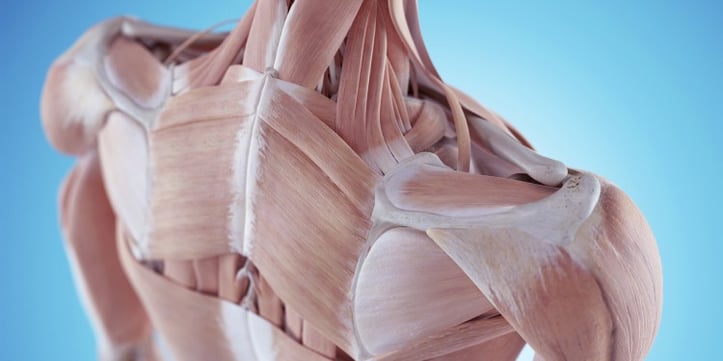Orthorexia in Fitness: When 'Healthy Eating' Becomes a Barrier to Progress

Orthorexia in Fitness: When 'Healthy Eating' Becomes a Barrier to Progress
For many in the fitness community, food isn’t just fuel—it’s a tool for performance, recovery, and body transformation. But what happens when the pursuit of 'perfect nutrition' crosses into obsession? Enter orthorexia: a term coined in 1997 by Dr. Steven Bratman, describing an unhealthy fixation on 'clean' or 'pure' eating. While not yet an official DSM-5 diagnosis, research in Eating Behaviors (2021) found 17% of gym-goers exhibit orthorexic tendencies—twice the general population.
What Orthorexia Looks Like in Fitness Circles
Orthorexia isn’t about calorie counting; it’s about moralizing food. Common red flags include:
- Ritualistic meal prepping (e.g., measuring spices by gram, avoiding 'contaminated' restaurant food)
- Anxiety around 'impure' ingredients (e.g., skipping post-workout carbs because they’re 'processed')
- Reduced social participation (e.g., declining gym meetups over fear of 'unhealthy' restaurant menus)
- Obsessive labeling of foods as 'good' or 'bad,' even when they’re nutritionally similar (e.g., demonizing honey but praising maple syrup)
Harvard Health notes that while orthorexia shares traits with anorexia, its root is often a desire for 'self-improvement'—making it uniquely insidious for fitness enthusiasts who view strict eating as 'discipline.'
The Hidden Cost to Your Fitness Goals
Ironically, orthorexia often undermines the very results people seek. Here’s why:
-
Energy Deficits Sabotage Performance The NASM (National Academy of Sports Medicine) emphasizes that moderate carb intake supports glycogen stores—critical for strength training and HIIT. Yet orthorexic restrictions (e.g., avoiding whole grains for 'gluten-free' alternatives) can cut calories below maintenance, leading to fatigue, slower muscle recovery, and stalled progress.
-
Nutrient Gaps Weaken Adaptation A 2022 study in Journal of Sports Science & Medicine found that 38% of self-described 'clean eaters' had inadequate zinc intake—vital for immune function and testosterone production. Over-restriction of healthy fats (e.g., avoiding avocados for 'low-fat' options) also impairs hormone regulation, slowing muscle growth.
-
Mental Burnout Erodes Consistency The constant stress of 'staying on track' triggers cortisol spikes, which ACE (American Council on Exercise) links to increased abdominal fat storage and reduced motivation. One participant in a 2020 Body Image study admitted, 'I’d rather skip a workout than risk eating something 'bad' afterward'—a cycle that derails long-term habits.
Reclaiming Balance: Practical Steps for Fitness Enthusiasts
The goal isn’t to abandon mindful eating—it’s to reframe food as supportive, not punitive. Here’s how:
-
Adopt the '80/20 Rule': Aim for nutrient-dense meals 80% of the time; let 20% include 'pleasure foods' (e.g., a post-gym protein cookie, or sushi with white rice). ACE research shows this flexibility reduces anxiety while maintaining progress.
-
Track How You Feel, Not Just What You Eat: Keep a journal noting energy levels, mood, and workout performance alongside meals. Does avoiding legumes really make you 'healthier,' or does it leave you dragging during squats?
-
Consult a Sports Dietitian (Not Just a 'Wellness Influencer'): A 2023 International Journal of Sport Nutrition review found personalized plans (vs. generic 'clean eating' advice) improved adherence by 42%. Look for an RD with ACSM or ISSN certifications.
-
Redefine 'Cheat Days' as 'Recovery Days': Let go of moral language. If pizza fuels your social energy or ice cream eases post-race soreness, it’s not 'cheating'—it’s holistic fueling.
Final Thought: Food Should Serve Your Goals, Not Dictate Them
Your relationship with food should mirror your approach to training: intentional, adaptable, and focused on progress over perfection. As strength coach and author Lou Schuler puts it, 'The best diet is the one you can stick to for life.' If your 'clean eating' feels like a prison, it’s time to renegotiate the terms.
Ready to test this balance? Try one 'flexible meal' this week—no food rules, just what sounds satisfying. Notice how it affects your mood and your next workout. Progress, not perfection, is the real win.

Fit vs Fat: Decoding Health's True Ruler

Pump Up Your Heart: Science-Driven Weight Loss

Wellness Technology: Your Path to Sustainable Weight Loss

A Sensible Guide to Dietary New Year's Resolutions

Prevent Shoulder and Rotator Cuff Injuries with Corrective Exercises

Overcome Fitness Plateaus: 4 Tips for Success

10 x 10 Thanksgiving Day Circuit: A Fitness Guide

Unleash Your Fitness Potential with Kit Rich's Training Secrets

The Future of Fitness: A Guide for Beginners to Intermediates

